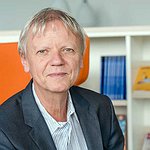The Development of the Concept of "Religion" from an Intercultural Perspective

The project sets out to analyze the development of the concept of "religion" in Early Modern Europe onwards and its usage in the conflict between different religious cults and denominations. It will focus as much on the religious contacts between Europe and other regions of the world as on conflicts among various religious cultures within Europe. The assumption underlying this approach is that the missionary combating of non-Christian and non-European cultures and the fight against "false" religions in Europe are very much linked to one another, and are perhaps but two sides of the same coin. The following areas of specification may be relevant for this study - in theological discourses the discussion of the concept of "religion" by deistical and pantheistical authors in Early Modern Europe, going back to the classical tradition of Greek and Roman philosophy and jurisprudence; in ecclesiastical discourses the establishment of church institutions, both in relation to various denominations and to the modern state; in historical discourses the emergence of the new discipline of church history in 17th and 18th century historiography. Methodologically, the research-project will focus on the study of discourses and semantic developments in the tradition of conceptual history and socio-historical structural analysis. Conceptual history rejects analyzing concepts on the basis of some kind of systematic definition of what religion "is" or "is for", as it has been done in many studies so far. It prefers instead to analyze them on the basis of hypothetical assumptions about the structure and change of the religious field in contemporary sources. This approach does't imply that language/concepts and the historical objects represented by them are one and the same. Rather, it tries to establish the difference between the meta-linguistic categories of current research and the object language of historical sources. In doing so specific attention is paid to discursive conflicts in the use of the different religion-terms, their linguistic construction and semantic change throughout history.
The project will verify a selection of basic hypothesis: 1.From the 18th century onwards the concept "religion" has been used in a double way: first as collective singular for signifying a specific quality of man, and second the plurality of religious systems existing in the world. With this ambiguity, the concept opens up as much the possibility of tolerance, coexistence and competition as the possibility of defining oneself by "the other". 2.The language of religion is an invention of modern times. Most religious terms were not invented until the 18th century onwards. If they existed before, their meaning usually was ambivalent in pointing to "religious" and "social" objects. This semantic ambivalence is of fundamental importance for the religious language of modern Christian cultures. 3.In modern times religious discourse very much relies on dichotomies such as Above (heaven) und Below (hell, the earth), There (eternity) and Here (temporality, presence), Beyond (life after death) and on this side (world), Inside (soul) and Outside (society). 4.In modern Christian societies religious concepts are usually defined by both, believers and unbelievers, i.e. from inside and outside the Christian community. What seems to be the opposite of religion, unbelief, atheism, agnosticism and indifference, in fact is part of the religious system. As part of the collaboration with other projects in topic area 3 it will be essential to examine to what extent these hypotheses are specific features of modern Christianity. Comparing the basic semantic structures of differing religious cultures opens up the opportunity to analyze the relationship between Christian and non-Christian, European and non-European, modern and pre-modern "religions", a relationship so rich in conflicts and non-homogeneous perspectives.
Affiliated Persons


